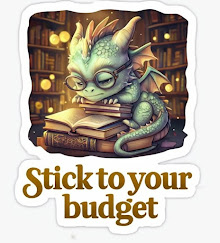Struggling to Save? Discover This Simple 7-Step Guide to Mastering Your Personal Budget Today!
Managing your money starts with a simple tool: a personal budget. A budget allows you to see exactly where your money is going so you can spend less than you earn. Whether you want to save for important things, pay off debt, or stop living before payday, creating a personal budget is key to achieving these goals. Let’s look at the steps to creating a budget that works for you.
1. Know your income
The first step in creating a personal budget is knowing exactly how much you earn. This is your income, including your salary, side income, and freelance work. It is important to use net income, which is take-home pay after taxes, rather than gross income.
For example, if you earn $2,500 a month but after taxes, insurance, and retirement contributions, you receive $2,000, then $2,000 is the amount you should base your budget on.
2. Track your spending
Next, you need to know where your money is going. Track all of your spending for at least a month. This includes rent, groceries, transportation, and fun activities like dining out and entertainment. Don’t forget annual subscription fees (Spotify, Netflix) and car insurance. Every dollar counts.
You can track your spending in a simple notebook, spreadsheet, or budgeting app. The goal is to get a clear picture of how much you spend in different areas.
3. Categorize your expenses
Once you know what your expenses are, break them into categories. Common categories are:
Housing: Rent, mortgage, utilities
Transportation: Gasoline, mass transit, car repair
Meal expenses: groceries, eating out
Debt: Credit card payments, loans
Entertainment: movies, hobbies
Savings: Emergency reserves, retirement savings
Note: By categorizing your spending, you can see where you're overspending and where you can cut back.
4. Set spending limits
After you categorize your spending, set spending limits for each category. For example, if you typically spend $300 on groceries but want to save money, you could set a new limit of $250. The goal is to make sure your total expenses don't exceed your income.
A general rule to follow is the 50/30/20 rule.
Spend 50% of your income on necessities (rent, food, utilities).
Spend 30% on the things you want (entertainment, dining out).
20% goes to savings and paying down debt.
This rule will help you balance your budget and ensure you're enjoying your current life while saving for future goals.
5. Pay yourself first.
One of the best budgeting strategies is to pay yourself first. This means putting some of your income into savings or paying down debt before spending it on other things. Getting into the habit of saving, even if it's a small amount at first, will help you build financial security over time. To make this easier, you can set up automatic transfers to your savings account.
6. Stick to your budget
Creating a budget is just the first step. The challenge is to protect it. Review your budget regularly to make sure you're on track. If you're spending too much in one category, try spending less in another category to balance it out. It’s also important to be flexible enough to handle unexpected expenses.
Using a budgeting app and setting reminders can help you stay disciplined. The app tracks your spending in real time and notifies you when you're approaching your limit for a specific category.
7. Review and adjust your budget
Budgets are not static. As your financial situation changes, you may need to review and adjust your budget. For example, if you get a raise or your rent goes up, update your budget accordingly. Reviewing your budget every month will help you stay on top of your finances and ensure you're on track to achieve your goals.
In Conclusion
A personal budget doesn't have to be complicated. Get a clear picture of your finances by taking simple steps to understand your income, track your expenses, categorize your expenses and set limits. Stick to your budget, adjust as needed, and watch yourself take control of your money. Whether you're saving for a big purchase, paying off debt, or managing daily expenses, a budget is the key to financial success.





Comments
Post a Comment